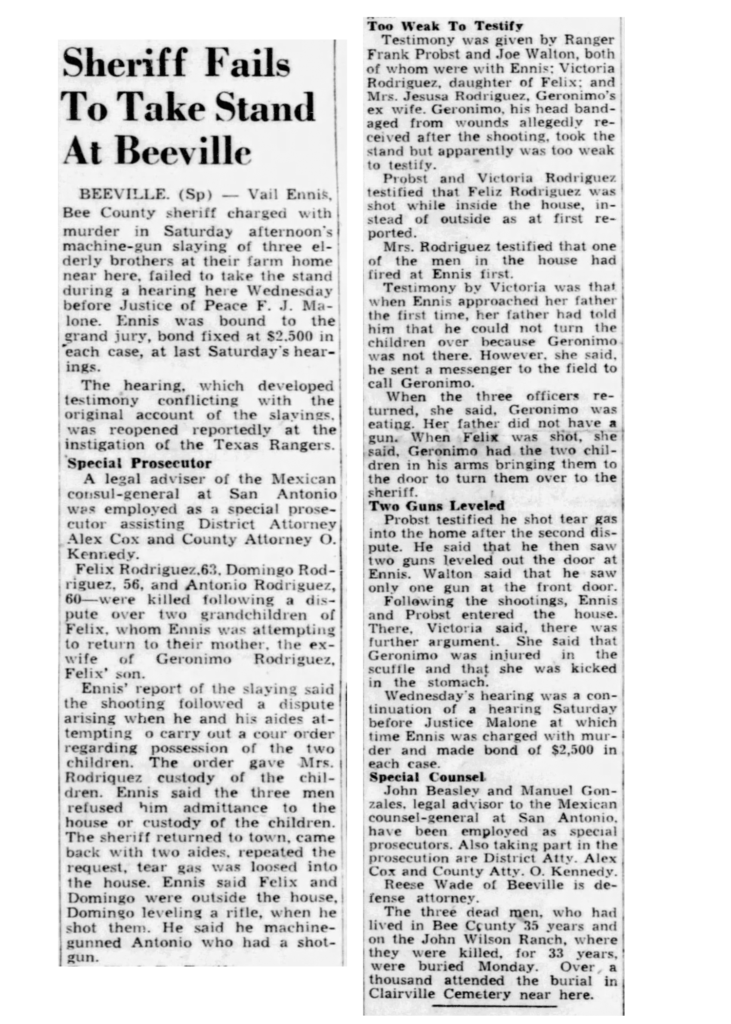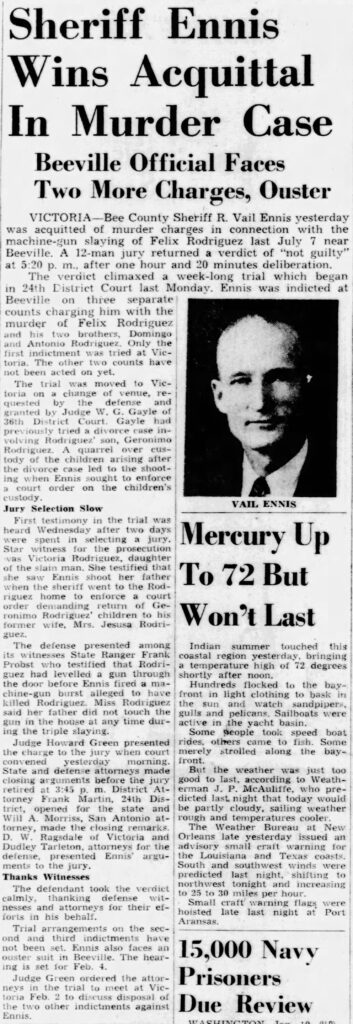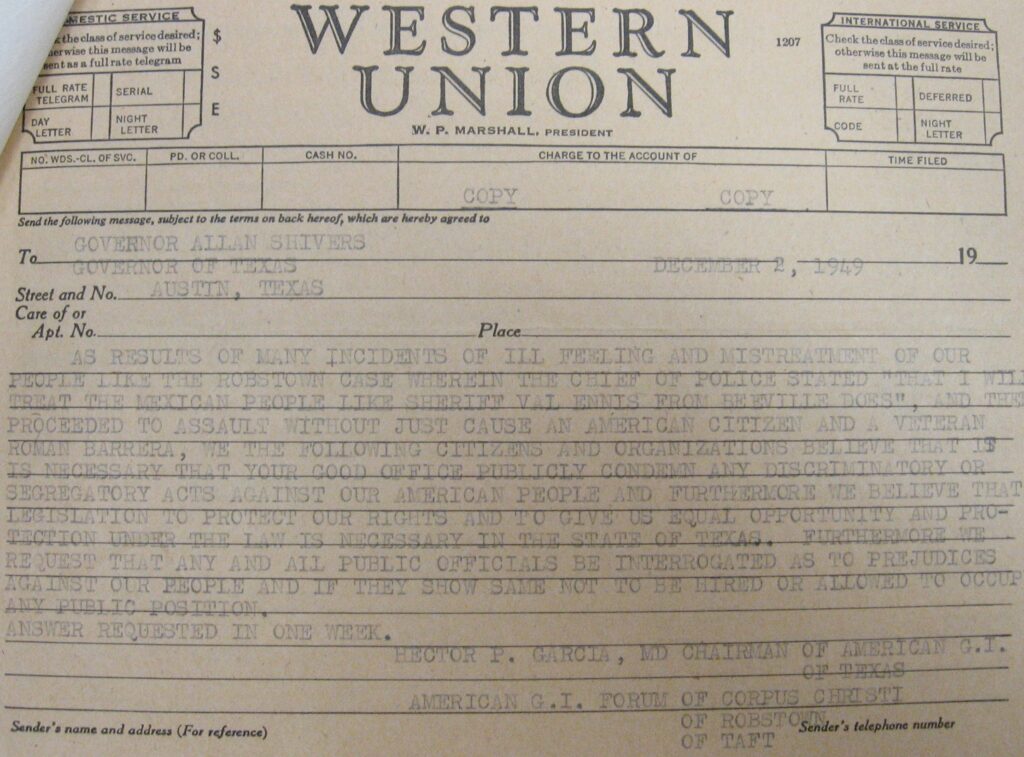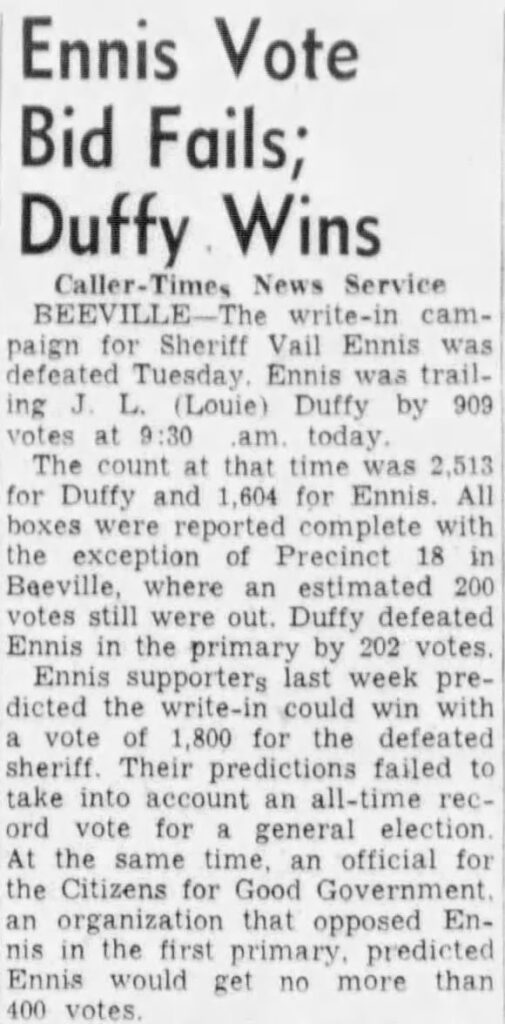#OTD on July 8, 1945, Bee County Sheriff Vail Ennis, with Texas Ranger Frank Probst and another deputized man, shot and killed brothers Felix, Domingo, and Antonio Rodriguez. Ennis mowed them down with a Thompson submachine gun. A fourth brother, Geronimo, was injured.

Sheriff Ennis had a long history of abuse and killing. He had beaten a Mexican man with a heavy chain and then allegedly shot and killed this unarmed individual. He also killed an African American man he had arrested in his jail cell.
The Last Sheriff in Texas: A True Tale of Violence and the Vote
The Rodriguez brothers were well-known and respected Mexican American farmers. Ennis had gone to their farmhouse to retrieve two of Geronimo’s children as part of an obligation in a custody settlement. The brothers refused to let the children leave.
Ennis returned to Beeville, deputized Joe Walton, and contacted Ranger Probst for assistance. They returned to the Rodriguez home. Probst fired tear gas into the house. When Felix and Domingo emerged, Ennis shot them dead. He then saw Antonio and shot him and killed him.
Ennis claimed self-defense, but his story lack credibility and he was arrested and tried for murder. Probst testified in the case and noted that Ennis killed the men largely without cause, although he stated that at least 1 of the brothers had pointed a gun at the officers.

A jury acquitted Ennis in early 1946. The jury seemed swayed by Probst’s assertion that Ennis killed the men after one pointed a gun at the officers. Probst’s activity in these killings was little scrutinized and seemed to have caused him no professional or legal problems.

Ennis killed seven men during his time as sheriff, including four Mexican Americans and one African American. Dr. Hector P. Garcia, chair of the American G. I. Forum, along with 42 others telegrammed Governor Alan Shivers about this case and others.
They demanded “legislation to protect our rights and to give us equal…protection under the law” and “that any and all public officials be interrogated as to prejudices against our people and if they show same not to be hired or allowed to occupy any public position.”

The telegram showed Mexican American leaders flexing their power. They demonstrated that power a few years later when Ennis ran for reelection. The G. I. Forum came out hard against him. Mexican Americans voted overwhelmingly against Ennis, who lost by a wide margin.

Ennis tried again in 1954. Mexican Americans voted against him in large numbers and he lost again. This example demonstrates that, while suffering police abuse, Mexican Americans could also wield power. They had pushed for the trial and cost Ennis his bid for reelection.
Law enforcement and police violence have been important drivers of Mexican-American politics and activism, though these facts are rarely incorporated into analyses of the politics and policy of policing.
This thread is a part of the #OTD in Ranger history campaign that @Refusing2Forget is running this year. Follow this twitter handle or https://refusingtoforget.org/ranger-bicentennial-project/, and visit our website https://refusingtoforget.org to learn more.
Refusing to Forget members are @ccarmonawriter @carmona2208 @acerift @soniahistoria @BenjaminHJohns1 @LeahLochoa @MonicaMnzMtz and @Alacranita, another co-founder is @GonzalesT956
.@emmpask @sdcroll @HistoryBrian @LorienTinuviel @hangryhistorian, @ddsanchez432, @elprofeml, and @littlejohnjeff are other scholars working on this project.
